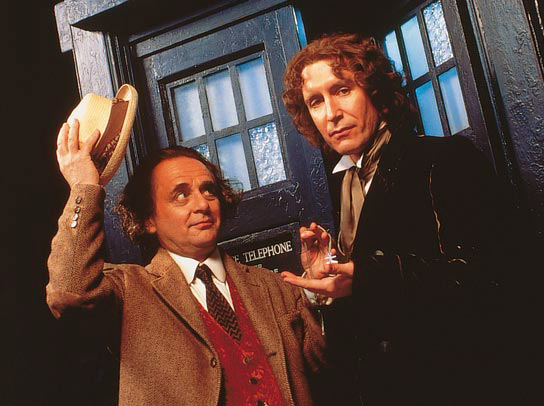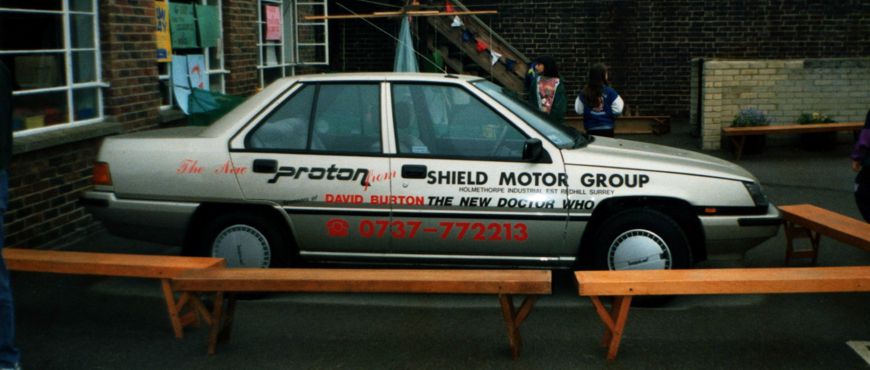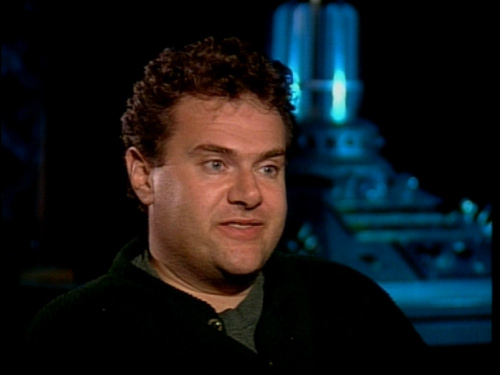What led to the departure of the 7th Doctor Sylvester McCoy in 1996?

The 7th Doctor left our screens in 1989. Few people saw it coming – even the Doctor Who stars Sylvester McCoy and Sophie Aldred were surprised when they found out that they wouldn’t be returning for Season 27. And at the time, little was said publicly. Doctor Who just quietly disappeared.
And there was a reason for this. The BBC had tried to cancel the programme back in 1985, and faced a backlash. But this time, the BBC’s new Head of Serials decided to take a more subtle approach, quietly removing it from the schedules and telling fans to expect a “longer than usual wait” for the next series of Doctor Who.
Of course, the show’s producer John Nathan-Turner had an inkling that Doctor Who would not be returning, and because of this he asked for a slight change to made to the end of ‘Survival’ – the final story of Season 26. He asked script editor Andrew Cartmel to pen a poignant speech for the 7th Doctor as he and Ace returned to the TARDIS. He wanted Doctor Who to have a fitting send-off if, indeed, ‘Survival’ proved to be the last ever story.
Fortunately, it wasn’t. Doctor Who may have been entering a period of uncertainty, but it was far from being all over. A number of TV companies entered into something of a bidding war for Doctor Who‘s rights, and in the early 90s a number of attempts were made by independent production companies to relaunch the programme. One of these was a mysterious endeavour in which the Sheffield DJ David Burton was cast as the 8th Doctor, along with twin companions Heart and Diamond and a red telephone box TARDIS. But little else is known about this production, except that it was never completed.

Another project was subtitled ‘The Last of the Time Lords‘ and was going to be directed by Leonard Nimoy. In addition, the BBC itself formulated plans to bring the 7th Doctor back into the fold with a 30th anniversary special called ‘The Dark Dimension.’ All of these projects ultimately came to nothing, and for many years the only new Doctor Who was a brief skit for Children in Need called ‘Dimensions in Time’ – the canonicity of which is debated to this day.
But behind the scenes, an ambitious producer and Doctor Who fan called Philip Segal was devising his own plans to resurrect Doctor Who. This took many years, and the project evolved considerably over time. At one point, the relaunch was going to be produced by Amblin Entertainment – the production company owned by Steven Spielberg.
Ultimately, Segal was given the opportunity by Fox to produce a Doctor Who TV movie. And whilst this was good news, it did present Segal with a problem, in that his deal with the BBC had been for a brand new series. However, he was able to work around this by using the TV movie as a back-door pilot; if it was a success, Fox would greenlight a new TV series, and this would be a co-production between the BBC, Universal and Fox.

And then came the issue of casting. From an early stage, it was clear that the 7th Doctor would not be the main Doctor in the TV movie. But the various parties couldn’t agree on whether the 7th Doctor should return at all. Segal felt that it would dishonour Sylvester McCoy if he wasn’t given the opportunity to regenerate, whereas other parties felt the movie should begin with the 8th Doctor already in situ.
Ultimately, it was the BBC who settled this debate, assuring the other producers that everything would be fine so long as the 7th Doctor’s appearance was brief and that he didn’t say anything!
And in the end, this is close to what happened. In the TV movie, the 7th Doctor is carrying the remains of his arch enemy the Master back to their home planet of Gallifrey. But part of the Master has survived. He escapes from his casket and sabotages the TARDIS, forcing it to crash-land in San Francisco in 1999. And when the 7th Doctor emerges, he finds himself caught in the middle of a gun fight between rival street gangs, and is fatally wounded. And although the 7th Doctor is afforded some dialogue over the course of these events, it is fair to say that his appearance is quite fleeting.
The 8th Doctor, therefore, is revealed about a third of the way into the film, when he regenerates in a hospital morgue. Sylvester McCoy was happy with the replacement that the producers had chosen, as the new Doctor (Paul McGann) was a friend of his.
Alas, the 8th Doctor’s TV tenure was to be short-lived. The TV movie performed well in the UK, but the viewing figures in the US failed to impress Fox, who decided against commissioning a new series. This was a blow to all concerned, not least to Paul McGann, who had already started searching for places to live in Vancouver where the production was to be based.
That being said, in the years that followed Paul McGann went on to become one of the series’ most beloved Doctors. Since the late 90s, he has starred in more Doctor Who audio adventures for Big Finish than any other Doctor, and he continues to make them to this day. Moreover, in 2013 the BBC invited him back for a special mini episode entitled ‘The Night of the Doctor,’ which told the story of his death and his regeneration into John Hurt.
At the same time, the 7th Doctor Sylvester McCoy continues to be a fan favourite, with two of his three seasons already available on Blu-ray. And should you ever fancy investing in his iconic question mark sweater, you know where to look 😉
Read about the Eighth Doctor’s regeneration here.

Seventh Doctor silk Paisley scarf – order now from the Lovarzi shop!

Have to admit, I like the TV movie very much. And I’m so glad they chose to honour Sylvester with a return, even a short one, for the regeneration. Paul was a brilliant choice as Doctor 8. It is a shame, though, that a television series didn’t surface as a result. I enjoy some of the BF audios, but what a missed opportunity for a whole TV ‘Season’ with Paul’s Doctor.
I’m more in favour of the BBC Books of the 8th Doctor’s adventures. If anyone hasn’t read them, Vampire Science is a favourite of mine; and I have a soft spot for ‘The Eight Doctors’ and ‘War of the Daleks’ novels.
I enjoyed some of the early Eighth Doctor novels too, although I didn’t follow them for very long. The Bodysnatchers was a personal fave!